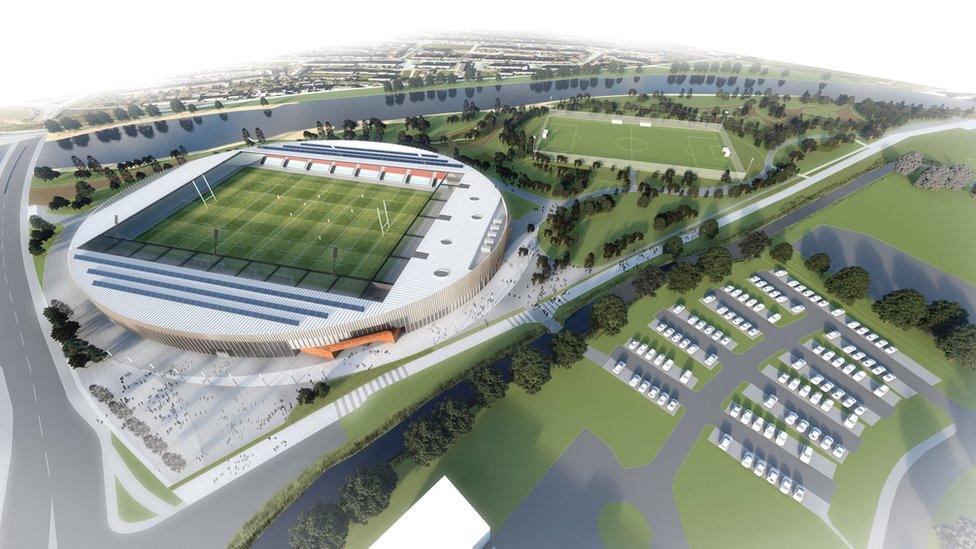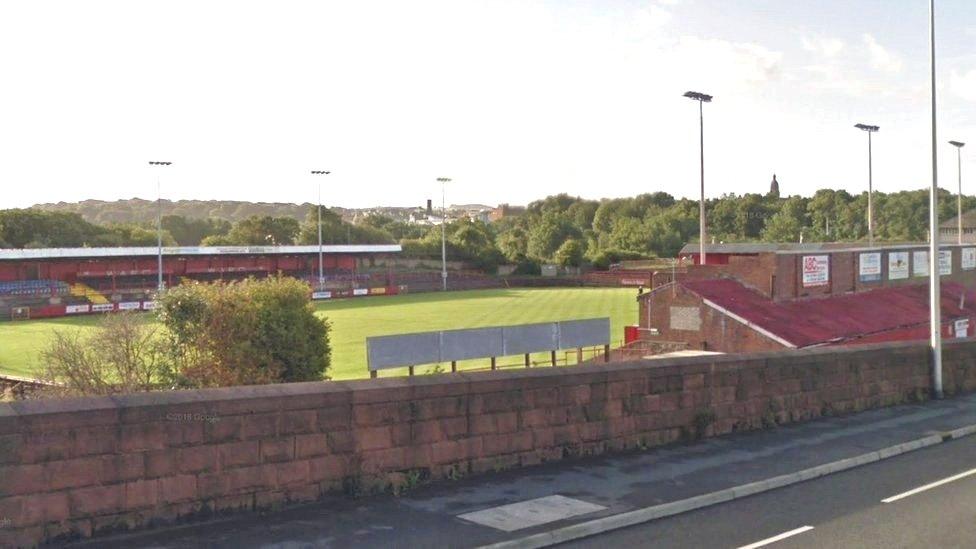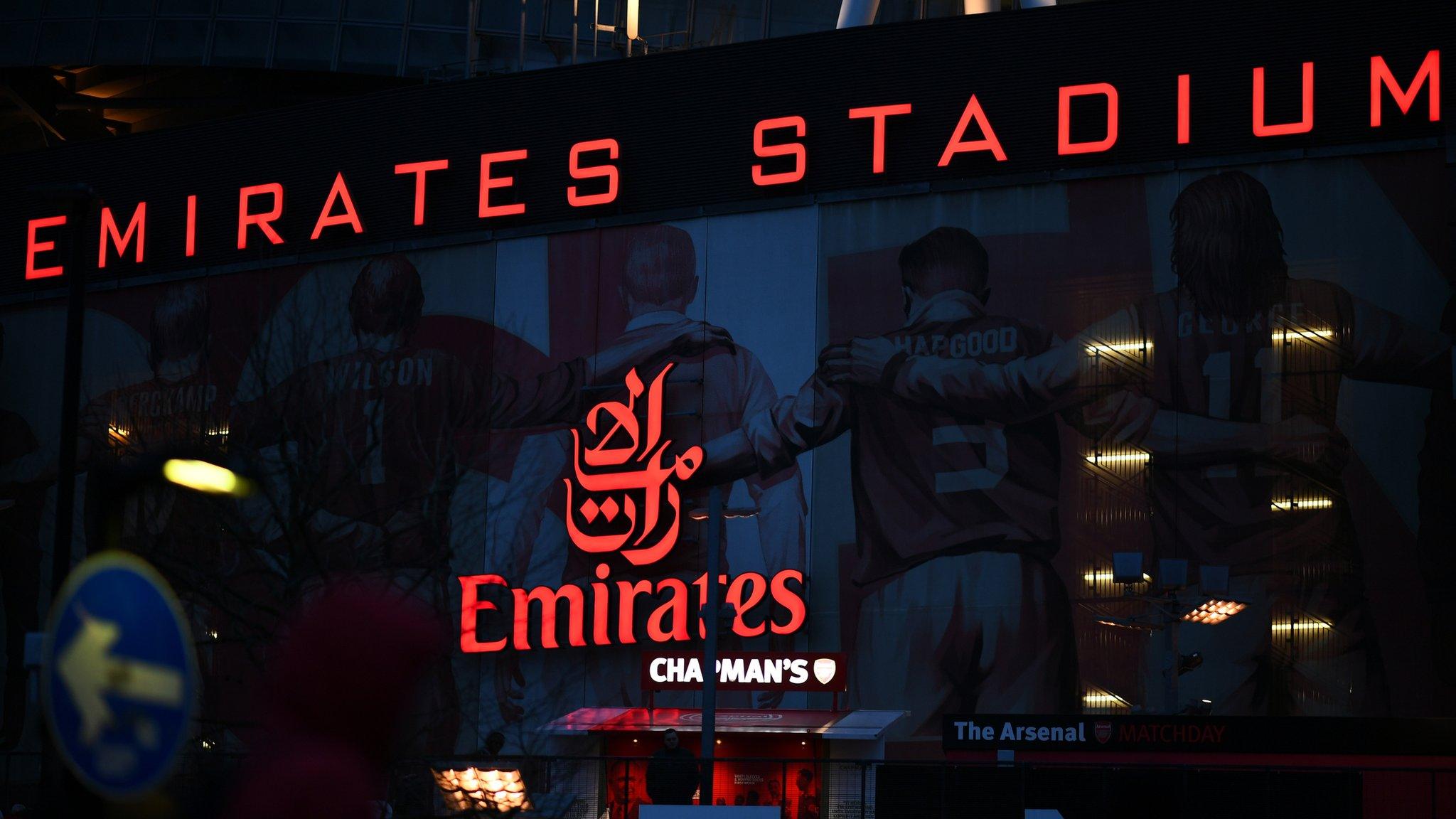Workington rugby and football stadium rethink 'astounding'
- Published

Independent and Conservative councillors are concerned about the cost of the previous Labour administration's scheme
Scaling back plans for a new sports stadium will threaten two clubs and kill off Cumbria's chance of hosting a prestigious rugby event, it is claimed.
A new stadium in Workington, Cumbria, was to host games in the 2021 Rugby League World Cup.
But Allerdale Council's new executive wants the plan reduced, saying it poses a "considerable financial risk".
Workington Town rugby league director Barry White said, given the projected profit, the decision was "astounding".
His club would have shared the new 8,000-seater stadium with Workington Reds. Both are currently using the football club's ageing ground.
"It is a massive danger that both clubs could end up out of business," he said.
"People aren't going to come to these kind of stadiums - they're not going to come to a rundown stadium."

Workington Town rugby league club has been sharing Workington Reds football ground
Independent and Conservative councillors had been concerned about the council's potential liability for the scheme.
Since May's elections they control the council's ruling executive and have now ordered a review of the scheme to reduce its size and cost.
Council leader Marion Fitzgerald said there was "no question that the project would place the council under considerable financial risk".
'Massive disappointment'
The benefit to the two clubs and the wider community had to be weighed against "the financial burden to the taxpayer", she said.
The borough's successful bid to host the rugby sporting event in 2021 was dependent on the creation of the new arena.
Mr White said that was "all gone now" and it was a "massive disappointment for the area".
Council officers had said the project would be a "catalyst for wider regeneration", with the potential to generate £239m income over its 50-year lifespan.
The venue would have also provided office space for 350 Sellafield workers, a pharmacy and NHS facilities, the Local Democracy Reporting Service said.
- Attribution
- Published29 January 2019
